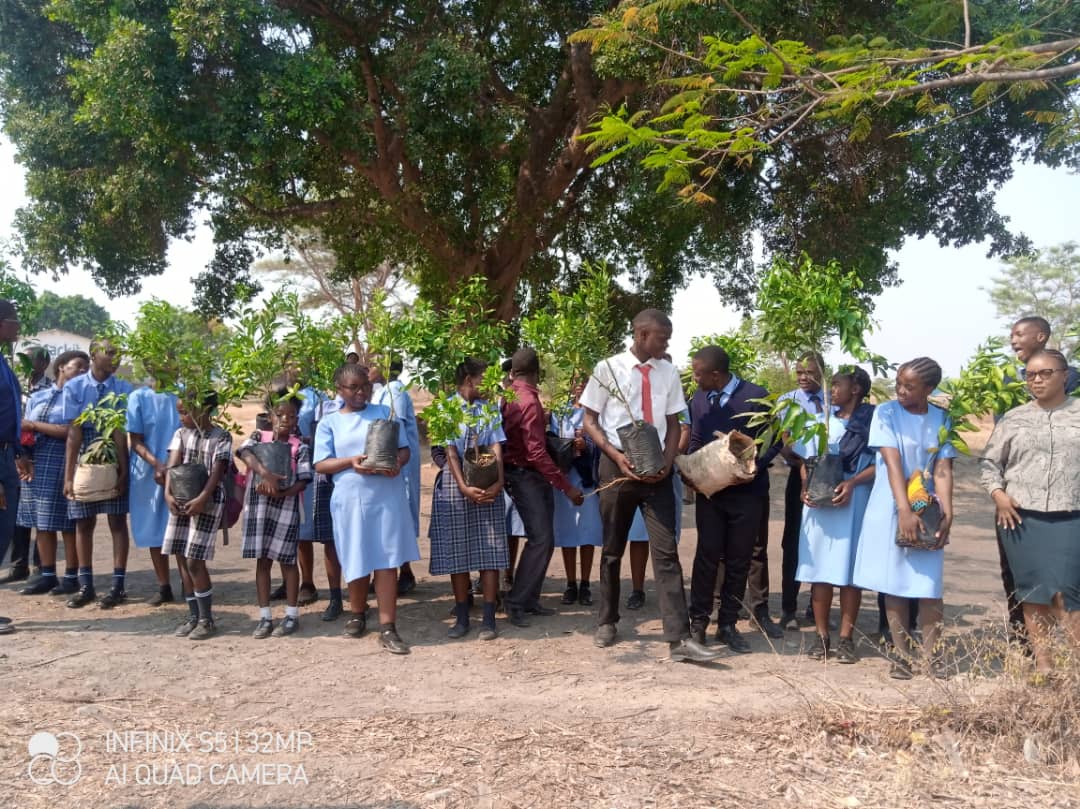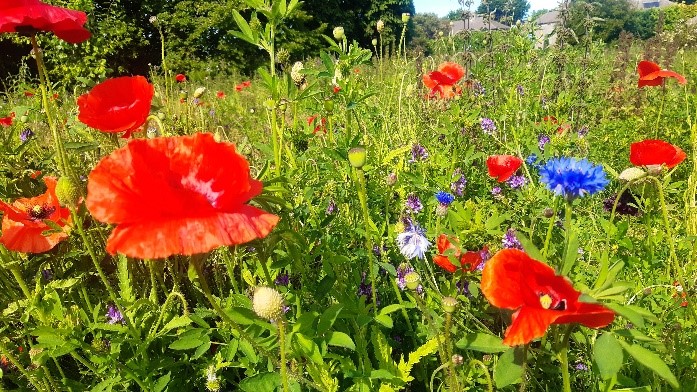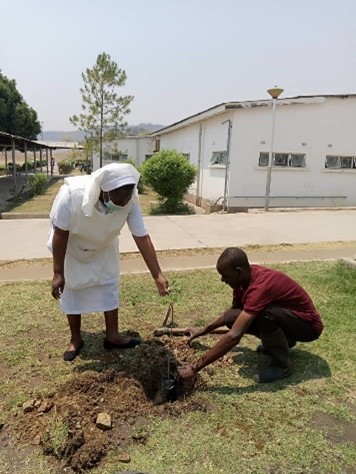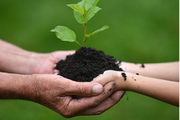
Celebrated recently across the globe, Earth Day is an annual event honouring the achievements of the environmental movement. The day also seeks to raise awareness of the importance of long-term ecological sustainability. This year’s theme is Invest in Our Planet. With this theme in mind, we think of Religious Sisters of Charity all over the world who honour, respect, and work with the natural world through their ministries to help it flourish. What will you do to invest in our planet?
Care of the Earth has been a priority of the RSC for almost two decades, with each area of the Congregation represented on the Care of the Earth Committee. The actions taken vary by the different areas but throughout the Congregation, we have focused on recycling, reducing consumption of plastics and using biosafe products. Although these changes may take some time to initially set-up, they are a crucial investment in safeguarding our planet. In Ireland, only hybrid vehicles have been purchased over the last five years; solar panels power our sisters’ homes in Africa; sisters in California have focused on cleaning the ocean of plastic; while in England, our sisters prioritise eco-conscious shopping.
The Care of the Earth committee is also guided by Pope Francis’ second encyclical, Laudato Si’ (2015). He called on the world to take “swift and united global action” to care for our planet and “reflect on our accountability before [future generations] have to endure the dire consequences” of the climate crisis. To mark the fifth anniversary of Laudato Si’, the Vatican announced the Laudato Si’ Goals to aid sustainable transformation over the next seven years: ‘Response to the Cry of the Earth’, ‘Response to the Cry of the Poor’, ‘Ecological Economics’, ‘Adoption of Sustainable Lifestyles’, ‘Ecological Education, ‘Ecological Spirituality’, ‘Community Resilience and Empowerment’. In particular, ‘Response to the Cry of the Poor’ aligns closely with our charism of ‘Service of the Poor’.
Last year, the Religious Sisters of Charity publicly committed to the Laudato Si’ Goals and Pope Francis’ urgent appeal to transform the congregation in a more sustainable manner. By integrating the seven goals of Laudato Si’ into the lives, ministries and work of our sisters, we are prioritising the cry of the earth and the cry of the poor, calling our members to invest in making sustainable lifestyle changes to save our planet.
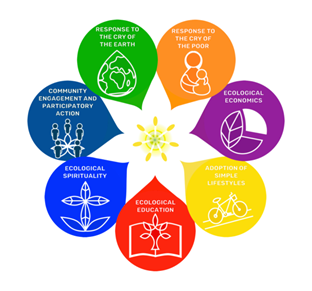
Laudato Si’ Goals
RESPONSE TO THE CRY OF THE EARTH
The Response to the Cry of the Earth is a call to protect our common home for the wellbeing of all, as we equitably address the climate crisis, biodiversity loss, and ecological sustainability. Actions could include the adoption of renewable energies and energy sufficiency measures, achieving carbon neutrality, protecting biodiversity, promoting sustainable agriculture, and guaranteeing access to clean water for all.
RESPONSE TO THE CRY OF THE POOR
The Response to the Cry of the Poor is a call to promote eco-justice, aware that we are called to defend human life from conception to death, and all forms of life on Earth. Actions could include projects to promote solidarity, with special attention given to vulnerable groups such as indigenous communities, refugees, migrants, and children at risk, analysis and improvement of social systems, and social service programmes.
ECOLOGICAL ECONOMICS
Ecological Economics acknowledges that the economy is a sub-system of human society, which itself is embedded within the biosphere–our common home. Actions could include sustainable production and consumption, ethical investments, divestment from fossil fuels and any activity harmful to the planet and the people, supporting circular economies, and prioritizing care labour and protecting the dignity of workers.
ADOPTION OF SUSTAINABLE LIFESTYLES
The Adoption of Sustainable Lifestyles is grounded in the idea of sufficiency, and promoting sobriety in the use of resources and energy. Actions could include reducing waste and recycling, adopting sustainable dietary habits (opting for a more plant-based diet and reducing meat consumption), greater use of public transport, active mobility (walking, cycling), and avoiding single use items (e.g. plastic, etc.).
ECOLOGICAL EDUCATION
Ecological Education is about re-thinking and re-designing curricular and institutional reform in the spirit of integral ecology in order to foster ecological awareness and transformative action. Actions could include ensuring equitable access to education for all and promoting human rights, fostering Laudato Si’ themes within the community, encouraging ecological leadership (students, teachers), and ecological restoration activities.
ECOLOGICAL SPIRITUALITY
Ecological Spirituality springs from a profound ecological conversion and helps us to “discover God in all things”, both in the beauty of creation and in the sighs of the sick and the groans of the afflicted, aware that the life of the spirit is not dissociated from worldly realities. Actions could include promoting creation-based liturgical celebrations, developing ecological catechesis, retreats and formation programmes, etc.
COMMUNITY RESILIENCE AND EMPOWERMENT
Community resilience and empowerment envisage a synodal journey of community engagement and participatory action at various levels. Actions could include promoting advocacy and developing people’s campaigns, encouraging rootedness and a sense of belonging in local communities and neighbourhood ecosystems.


